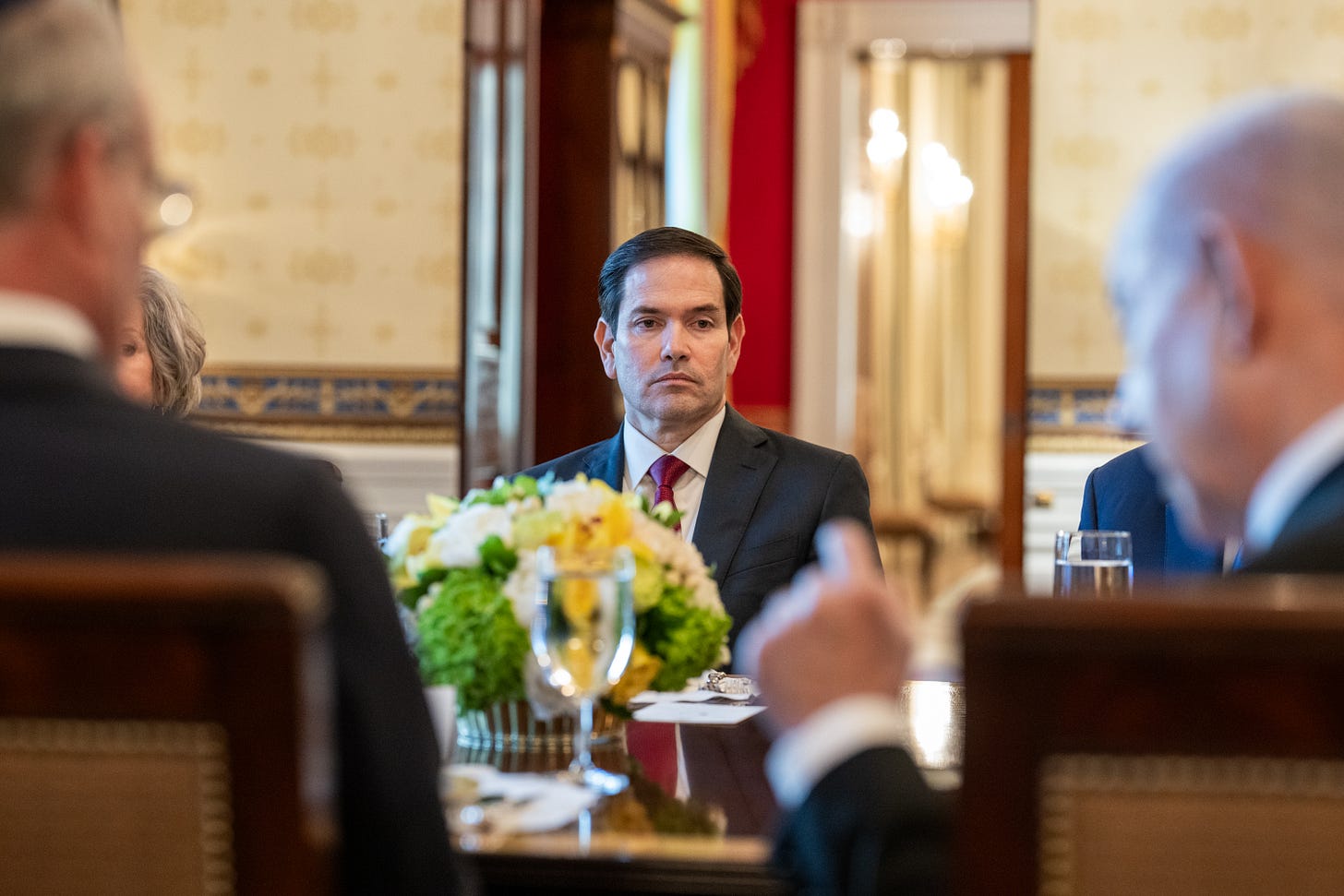
By Trygve Olson
In 2005, I sat in a drafty meeting room in Vilnius, Lithuania — a few chairs away from a senior Belarusian regime official, across from democratic activists risking their lives, and shoulder-to-shoulder with American and European diplomats doing their best to hold the line.
I didn’t always love those diplomats.
In fact, I fought with more than a few of them.
Some were rigid. Others territorial. A few outright dismissive of democracy work.
But I’ll tell you this: most of them showed up.
And the best of them — the ones who understood the stakes — didn’t just represent the United States.
They embodied it.
Now, 1,300 of them are gone.
The News We Shouldn’t Ignore
According to internal memos obtained by the New York Post, the State Department has begun a sweeping purge: over 1,300 foreign service and civil service professionals have been notified that their jobs are being eliminated.
Not reassigned.
Not restructured.
Gone.
This isn’t just cost-cutting. It’s strategic.
Because weakening diplomacy isn’t a byproduct of authoritarianism — it’s part of the plan.
What We Lose When Diplomats Go
Let me be honest.
I’ve had a love-hate relationship with the Foreign Service.
I’ve worked alongside career officers who thought democracy work was messy, inconvenient, politically dangerous, or even bad for their careers.
I’ve seen embassy staff try to sideline polling, delay outreach, or ask us to focus on “less controversial” things — like teaching people how to make yard signs.
But I’ve also watched diplomats make calls they weren’t supposed to make.
Step into rooms they weren’t invited to enter.
And defend people who had no other shield but the American flag on their lapel.
I’ve met FSOs who learned the language, understood the culture, and stayed long after the rest of Washington had lost interest.
They didn’t just implement U.S. foreign policy — they interpreted America to the world.
And they did it with humility, courage, and moral clarity.
When you fire 1,300 of them, you don’t just eliminate jobs.
You gut the connective tissue of American soft power.
Soft Power Isn’t Soft
In The Battle for Democracy, I wrote:
“The prevailing wisdom within anti-freedom regimes is that American soft power is omnipotent. The reality is, our ability to defend democracy is only as strong as our ability to engage our allies in the fight.”
What I learned from over two decades abroad is this:
Hard power intimidates. Soft power persuades.
And persuasion is what makes democracies different, and it is what keeps the peace, including keeping humanity from ending humanity in the age of atomic weapons.
When we lose the people who know how to build coalitions, organize allies, speak across cultures, and show up in hard places without a gun, we lose our edge.
We also lose the respect of those fighting on the front lines of freedom.
When America Steps in without Strategy, the World Burns
We got here by design — through years of undermining diplomacy, undercutting alliances, and mocking the very institutions that made American leadership possible.
Diplomacy Is a Democracy Tool
Diplomats aren’t just functionaries. They’re force multipliers.
When I was in Belarus, the difference between a fragmented response and a unified front often came down to one thing: which ambassadors were willing to align.
I watched democracy work accelerate when U.S. and European diplomats stood side by side.
I saw fear in authoritarian regimes when we coordinated.
And I saw change slow to a crawl when we didn’t.
This is why cutting diplomatic capacity is so dangerous:
It doesn’t just isolate the U.S. — it fractures global democracy-building.
This Isn’t a Personnel Change. It’s a Power Shift.
The authoritarian model — at home and abroad — doesn’t believe in diplomacy.
It believes in dominance.
And it sees people who build bridges — real, human ones — as a threat.
These layoffs aren’t accidental.
They’re part of a broader dismantling of the idea that America leads by example, persuades through principles, or partners through shared values.
Trump doesn’t want a State Department.
He wants a loyalty department.
And once you understand that, this move makes perfect sense.
What We Can Still Do
1. Defend the institution.
You don’t have to agree with every diplomat to understand that without them, we have no presence abroad that reflects our democratic ideals.
2. Elevate those who served.
Share the stories of public servants who did the work, especially those who’ve been sidelined or pushed out. Let people see who’s being lost.
3. Demand a rebuilt foreign service, with democracy at its core.
If and when power shifts again, rebuilding the State Department has to be a top priority. Not just structurally, but philosophically.
Bottom Line
I’ve seen what happens when American diplomats leave the field.
Authoritarians move in.
You don’t have to love Foggy Bottom to fight for what it represents:
The idea that America’s power doesn’t come just from missiles and markets, but from the people who carry our values into the world.
We’re weaker without them.
And the world knows it.
Trygve Olson is a strategist, pro-democracy fighter and a founding Lincoln Project advisor. He writes the Searching for Hope Substack. Read the original column here.





